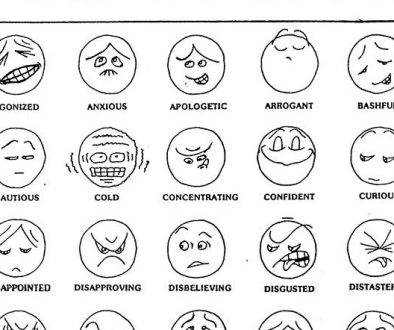Let it RAIN! -Jim Manske CNVC Certified Trainer
For me, rememberi ng the distinction between needs and strategies supports well-being because it goes to the root of suffering. To clarify what I mean, consider this example I heard at a recent workshop: “When I need empathy and understanding I want to rely on my mate. There is something about the quality of intimacy and connection that I expect to get. When I hear, “No” to my request, I feel hurt andlike I don’t matter. I realize I can call my friend to get empathy, and sometimes I do. But, it’s just not the same. Even after I get some empathy, the next time I see my mate, I feel resentful.”
ng the distinction between needs and strategies supports well-being because it goes to the root of suffering. To clarify what I mean, consider this example I heard at a recent workshop: “When I need empathy and understanding I want to rely on my mate. There is something about the quality of intimacy and connection that I expect to get. When I hear, “No” to my request, I feel hurt andlike I don’t matter. I realize I can call my friend to get empathy, and sometimes I do. But, it’s just not the same. Even after I get some empathy, the next time I see my mate, I feel resentful.”
So, listening to this person it seems clear the needs they would like met: empathy, understanding, connection, intimacy, to matter. It also seems clear the person knows how to ask for what they want. They even seem to understand that, “A need makes no reference to a particular person doing a specific thing.” Yet, it also seems they are trapped in a web of suffering and resentment. Why?
When we get addicted to a strategy, we are bound to suffer. In fact the cause of suffering is addictive thinking. These addictions, expectations, and demands cause and reinforce a sense of separateness and destroy our serenity. How then, can we become liberated from these destructive habitual patterns?
RAIN: Recognize, Accept, Insight, Need
First, learn to recognize the symptoms of addiction, including anger, guilt, depression, shame, anxiety, and resentment. These destructive feelings are caused by life-alienated thinking patterns including demands, denial of responsibility diagnosis, and deserve-oriented thoughts.
Second, accept that an addictive pattern is playing out in your consciousness. Human beings have been suffering from addictions for longer than recorded history, so take solace that this is simply part of the human condition. By accepting that you have addictions, you help to end the addictive hold by not being addicted to not having addictions!
Third, work toward the insight that, “my addictions cause my suffering.” There are a variety of methods available to support you in achieving this insight, including “translating” addictive, judgmental thinking into feelings and needs through journaling. self-empathy, and/or empathic connection with another community member.
Clarifying that, “my addiction causes my suffering” is the antidote for blame and supports us in taking responsibility and maintaining the clarity that “my feelings emerge from the state of my needs”. This empowering insight frees up the energy to attend to ourselves and others compassionately.
We may touch profound sadness, despair, and mourning as we connect to the depth of our pain in relationship to certainneeds that have gone unfulfilled. This pain is a felt sense within the body and is distinct from the suffering of addictive thinking that we sometimes add to the feeling we are having.
From this deepening awareness and self-compassion, a shift inevitably occurs from addictive constriction to the creativity and openness to possibility that characterizes preferences and requests.
To become liberated from the suffering contemplate the following definitions and distinctions.
Need: the universal resources required to sustain and enrich life.
Strategies: methods that may or may not contribute to fulfilling needs.
Request: An offering of a strategy that one predicts will contribute to well-being by fulfilling one or more needs.
Demand: A life-alienated communication pattern characterized by the urge to punish when one does not get what one wants. Examples of demand language include phrases that contain, “Should” “Must”, “Have to _________ or else __________.”
Addiction: A strategy that we demand is fulfilled. When the strategy is not used we suffer from life-alienated thinking, enemy images, and destructive emotions like anger, hatred, and resentment.
Preference: A strategy that we predict will meet needs. If the preference is not utilized, one may feel mourning, but there is no suffering.
Suffering: Destructive emotions and the life-alienated thinking/communication patterns that cause them.
Pain: The felt-sense of an unmet need composed of physical sensations and emotions.
So returning to the example, and speaking from the first-person perspective of the participant”
*%#$@!, I want __________ to listen to me! Can’t they see I’m in pain and need support? How dare they say no?
AH….I recognize that I am caught up in addictive thinking! I can accept that I still have addictions. Everybody on the planet wants to have their way sometime!
Hmmm, I have the insight that my suffering, this resentment, and anger is caused by my thinking. These enemy images of my lover are excruciating! How can I hate the person I love? I want freedom from this addictive thinking!
So, what’s important to me? What do I Need? Ah, I’m really needing empathy and the safety that comes from intimacy. When I hear my mate say, “no”, I feel mournful, disappointment, sadness…I’d really prefer to get my empathy from them, and I don’t want to receive what is not fully given. I see now that I can get my needs met from within me, perhaps I need some support from my friend. And, I see how I can approach my mate another time when they are feeling more resourceful and I can ask again to be heard! So, right now, I’d like to ask me to spend 5 minutes walking and breathing.
The Practice:
Recognize your addictive thinking
Accept that all human beings who have been educated like we have will have addictive thoughts
Gain the Insight that your suffering is the consequence of your thinking
Detect the Need driving the addiction. As Marshall reminds us: “Every moral judgment is a tragic expression of an unmet Need.”
Note: I first heard the acronym RAIN from one of my Buddhist teachers, Tara Brach.
Taking inspiration from her work with a deep bow of appreciation, I have modified her acronym to fit the NVC model.
For more information on the source: https://duckduckgo.
—
http://www.scoop.it/t/radical-
training~mediating~
“Contributing to a world where everyone’s needs can be satisfied reliably & abundantly!”



